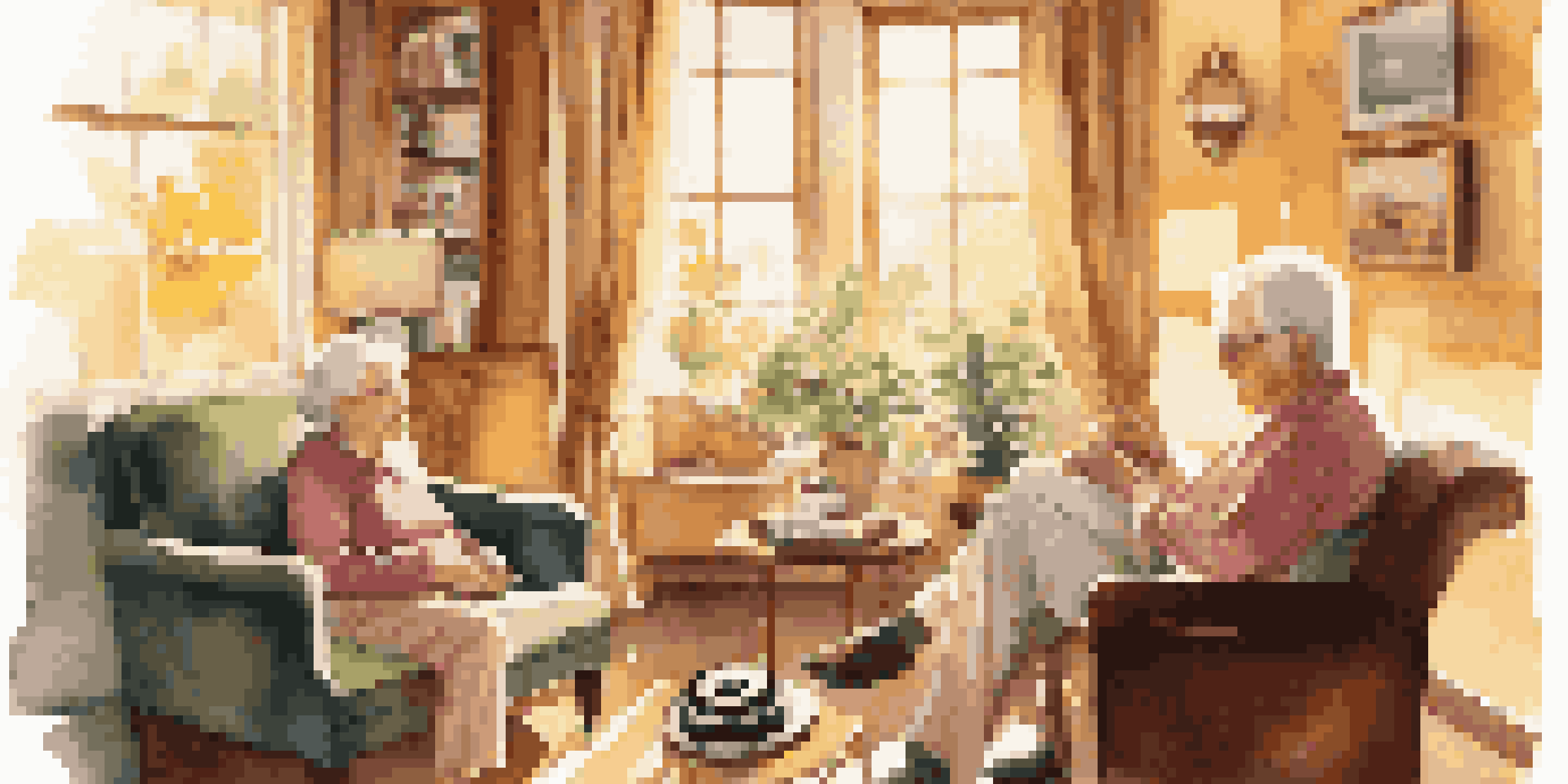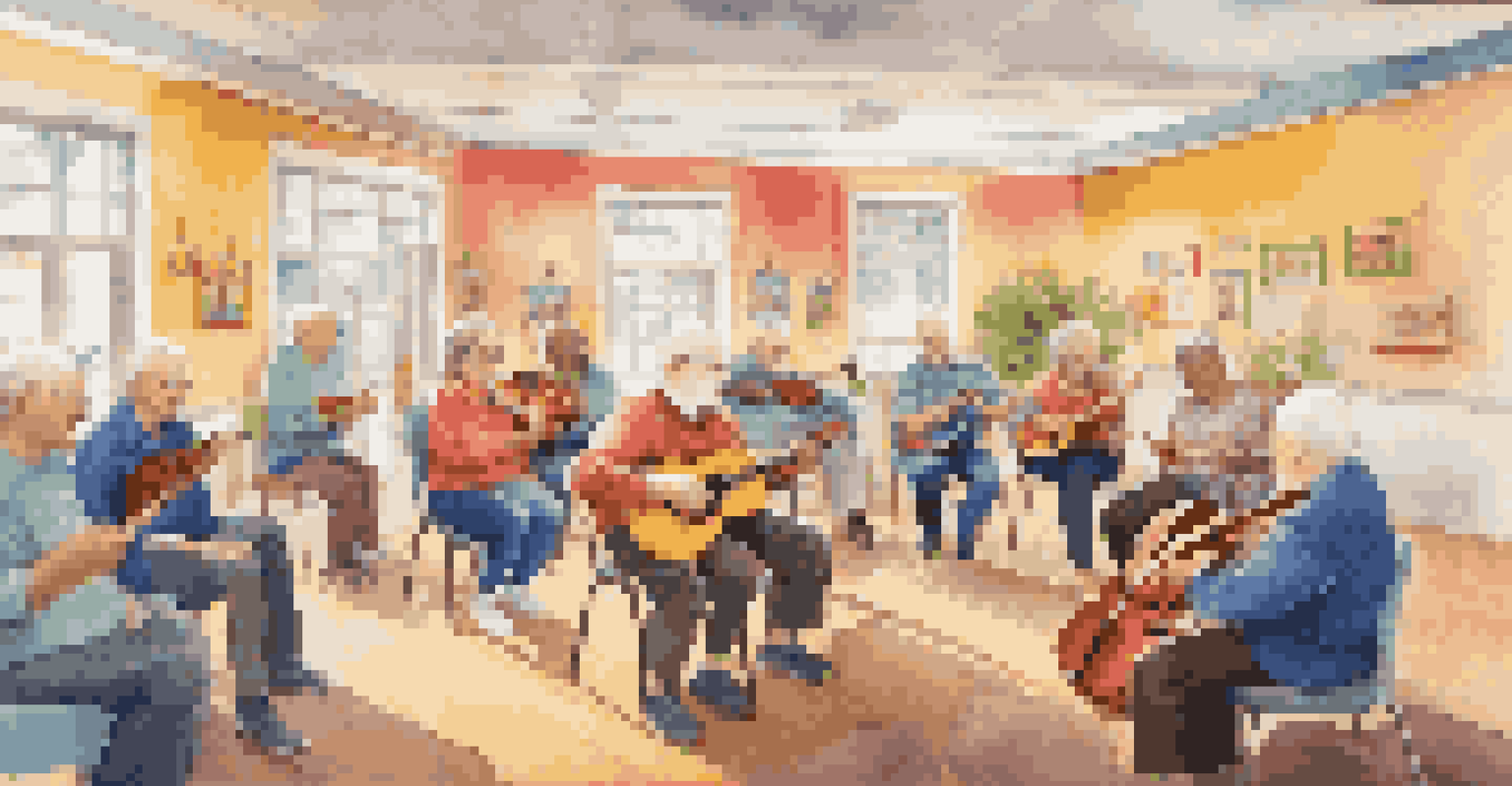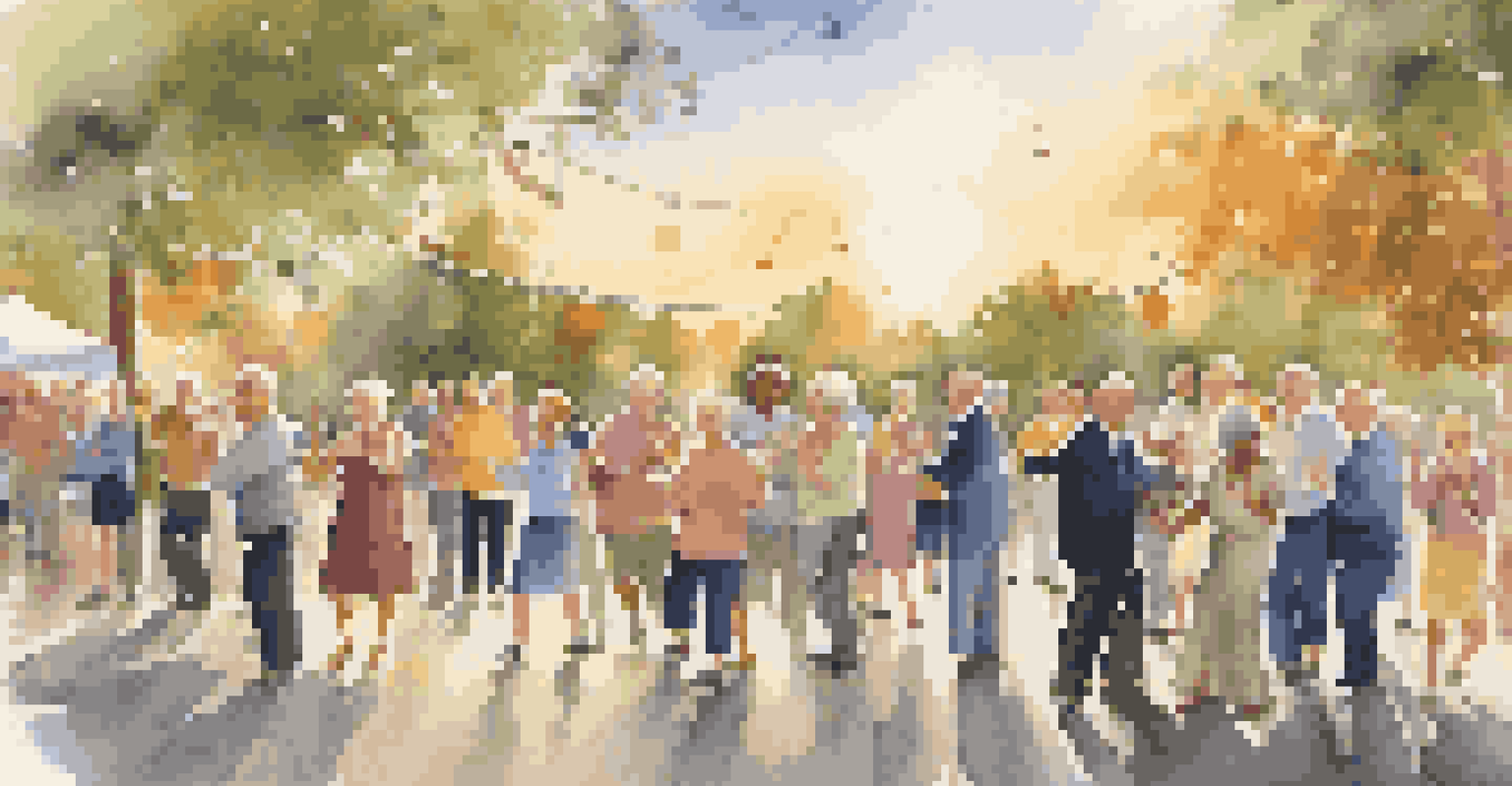Can Music Influence Seniors' Decision-Making Processes?

Understanding the Connection Between Music and Emotion
Music has a profound ability to evoke emotions, which can influence decision-making. For seniors, music often triggers cherished memories, enhancing their emotional state and bringing joy. When faced with choices, this emotional uplift can lead to more positive outcomes and a greater sense of well-being.
Music can change the world because it can change people.
Consider a senior listening to their favorite tunes from their youth. The nostalgia may cloud their judgment about a mundane decision, like choosing a meal, but it can also open doors to creativity and joy in their choices. This emotional influence is a powerful reminder of music's role in everyday life.
By creating an emotional connection, music can help seniors feel more confident in their choices. When they associate a positive feeling with a decision, they are more likely to follow through, making music a subtle yet impactful decision-making tool.
The Role of Music in Cognitive Function
Research indicates that music can stimulate cognitive functions, particularly in seniors. Engaging with music—whether through listening, singing, or playing an instrument—can enhance memory retention and processing speed. This cognitive stimulation is vital for seniors as they navigate decision-making.

Imagine a senior participating in a music therapy session. The activity not only sparks joy but also exercises their brain, helping to sharpen focus and improve clarity. This mental engagement can lead to more informed decisions in both daily life and significant matters.
Music Elevates Seniors' Emotions
Music enhances emotional states for seniors, influencing their decision-making positively.
Moreover, music can serve as a tool for cognitive rehabilitation, assisting seniors recovering from strokes or other conditions. By integrating music into therapeutic practices, caregivers can help seniors regain confidence and improve their decision-making abilities.
Influence of Music on Social Interactions
Music often acts as a social catalyst, bringing people together and fostering connections. For seniors, participating in musical activities can enhance their social interactions, which play a crucial role in overall well-being. These social connections can influence how they make decisions.
Without music, life would be a mistake.
When seniors engage in group activities like singing or dancing, they share experiences that create a sense of belonging. This community support can encourage them to make choices they might have avoided alone. The shared joy of music can lead to collective decision-making that feels more secure.
Furthermore, social interactions through music can mitigate feelings of loneliness, which often impacts decision-making. By feeling more connected to others, seniors may feel empowered to make choices that reflect their desires and needs.
The Impact of Genre on Decision-Making
Different genres of music can elicit various emotional responses, which can in turn affect decision-making processes. For instance, upbeat music may inspire a more optimistic outlook, while classical music might prompt deeper reflection. Understanding these effects can help seniors make more tailored choices based on their emotional needs.
Imagine a senior listening to lively jazz while contemplating a move to a new community. The vibrant rhythm might encourage a more adventurous spirit, leading them to embrace change. In contrast, a slower ballad might evoke caution, prompting them to consider the decision more carefully.
Cognitive Boost from Music Engagement
Engaging with music can improve cognitive functions in seniors, aiding memory retention and clarity.
By recognizing how different genres influence emotions, seniors can consciously select music to guide their decision-making. This approach allows them to harness the power of music, ensuring their choices align with their desired emotional state.
Music as a Tool for Stress Reduction
Stress can significantly cloud judgment and hinder decision-making. Music has been shown to reduce stress levels, creating a calmer environment for seniors to make choices. By integrating music into their daily routines, seniors can approach decisions with a clearer mind and a more relaxed demeanor.
Picture a senior feeling overwhelmed by the prospect of downsizing their home. Playing soothing music in the background can create a peaceful atmosphere, allowing them to think more clearly and make more thoughtful choices. This calming effect can lead to better outcomes in stressful situations.
Incorporating music as a stress-relief tool not only aids decision-making but also promotes overall mental health. By prioritizing relaxation through music, seniors can enhance their ability to navigate life's challenges with confidence.
The Benefits of Personal Music Preferences
Personal music preferences play a significant role in how music influences decision-making. Seniors often have specific genres or songs that resonate with their life experiences, making these choices deeply personal. By tapping into their unique musical tastes, seniors can leverage music to support their decision-making processes.
For example, a senior might find comfort in classic rock when facing difficult choices about healthcare. The familiarity of their favorite songs can provide a sense of stability, allowing them to reflect on their options without feeling overwhelmed. This personal connection can lead to more intentional and satisfying decisions.
Social Connections Through Music
Participating in musical activities fosters social interactions, which can empower seniors in their decision-making.
Encouraging seniors to curate their own playlists not only empowers them but also enhances their decision-making experience. By surrounding themselves with music they love, they can navigate life's complexities with a sense of agency and joy.
The Future of Music in Senior Care
As we continue to understand the impact of music on seniors, the future of music in senior care looks promising. Integrating music therapy and musical activities into care routines can enhance decision-making and overall quality of life. This evolution in care can lead to more personalized and effective approaches.
Imagine senior living communities that prioritize musical engagement, offering regular concerts, sing-alongs, and music therapy sessions. These activities not only enrich the lives of seniors but also create environments where they feel heard and valued, ultimately aiding their decision-making processes.

By embracing the role of music in senior care, we can foster a culture that celebrates individuality and emotional well-being. The future holds exciting possibilities for using music as a powerful tool for enhancing the lives of seniors and their decision-making capabilities.